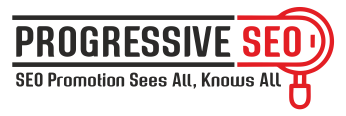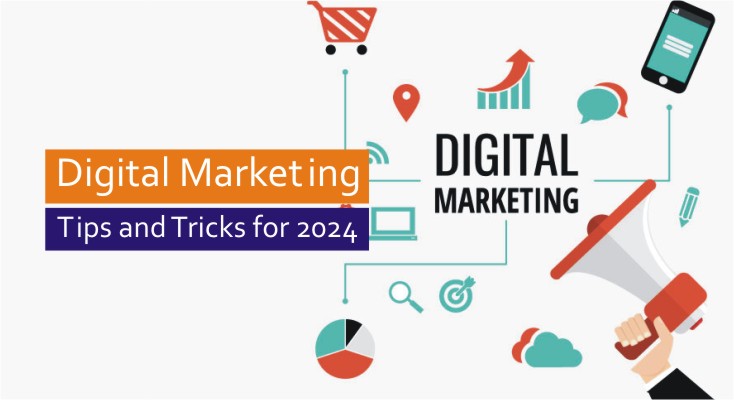Digital marketing has revolutionized how businesses reach and engage their target audience. It offers a range of powerful tools and strategies for businesses, individuals, and organizations to promote their services, build brands, and foster customer relationships. With its flexibility and broad reach, digital marketing is no longer limited to large corporations or tech-savvy businesses; it is accessible to virtually anyone with an online presence. This blog post will explore who can benefit from digital marketing and how it applies across different sectors.
1. Small and Medium-sized Enterprises (SMEs)
One of the most significant beneficiaries of digital marketing is small and medium-sized enterprises (SMEs). Traditionally, marketing has been a costly endeavor that involved significant spending on advertising mediums like TV, radio, and print. These channels were often out of reach for SMEs due to budget constraints. Digital marketing levels the playing field by offering cost-effective solutions that can reach a targeted audience without needing large budgets.
Through methods such as social media marketing, email marketing, and search engine optimization (SEO), SMEs can reach potential customers and grow their business efficiently. Pay-per-click (PPC) campaigns, for example, allow businesses to set specific budgets and pay only when someone clicks on their ad, ensuring that marketing dollars are used effectively.
2. Startups
Startups often operate with limited resources and need to make every dollar count. Digital marketing is an invaluable tool for startups as it provides a way to reach customers quickly and affordably. With targeted ads, startups can promote their products or services to people who are more likely to be interested, based on demographics, search behavior, and interests.
In addition, digital marketing allows startups to scale their efforts. A well-executed viral marketing campaign or social media strategy can quickly gain traction, helping a startup grow its customer base and gain market exposure. Moreover, digital marketing offers valuable insights through analytics tools, enabling startups to measure the success of their efforts in real time and adjust strategies accordingly.
3. E-commerce Businesses
E-commerce businesses are intrinsically tied to the digital world, making digital marketing an essential component of their success. E-commerce companies rely heavily on online visibility to attract customers, and digital marketing strategies such as SEO, content marketing, and social media advertising can help drive traffic to their websites.
For e-commerce businesses, digital marketing isn’t just about visibility—it’s also about converting visitors into customers. Strategies like retargeting ads (which show ads to people who have previously visited the site) and personalized email campaigns can significantly improve conversion rates. Additionally, online reviews and user-generated content can enhance credibility and trust, two factors that are crucial for online shopping.
4. Freelancers and Consultants
Freelancers and consultants, especially those operating in the digital space (like graphic designers, web developers, or social media consultants), can greatly benefit from digital marketing. By building a strong personal brand online, they can showcase their expertise and attract potential clients.
LinkedIn is a particularly valuable platform for freelancers and consultants to network, share thought leadership, and connect with potential clients. Additionally, SEO strategies can help these professionals ensure that their websites and portfolios appear in search results when potential clients are looking for their services. Content marketing (through blog posts, videos, or webinars) can further establish their authority in their niche, making them more attractive to clients.
5. Nonprofit Organizations
Nonprofit organizations often face budget constraints but still need to spread their message and raise awareness about their cause. Digital marketing provides an affordable and effective way for nonprofits to reach a large audience. Social media platforms like Facebook, Instagram, and Twitter allow nonprofits to share their stories, highlight their mission, and engage with supporters.
Email marketing is another powerful tool for nonprofits, allowing them to keep supporters updated about upcoming events, fundraising initiatives, and volunteer opportunities. Many digital marketing tools offer discounted or free services to nonprofits, making it easier for them to implement effective marketing strategies without breaking the bank.
6. Educational Institutions
Digital marketing is a game-changer for educational institutions, including universities, colleges, online learning platforms, and even private tutors. Educational institutions use digital marketing to promote their courses, attract students, and build their brand. With the rise of online learning, digital marketing has become even more crucial.
Search engine marketing (SEM) and SEO can help these institutions appear higher in search engine results, increasing their visibility to prospective students. Content marketing, in the form of blog posts, webinars, and video content, can provide valuable information to potential students, helping them make informed decisions. Social media campaigns and targeted ads can also drive enrollment by reaching students where they spend most of their time online.
7. Brick-and-Mortar Businesses
Even traditional brick-and-mortar businesses can benefit from digital marketing. In today’s digital age, most consumers search for products and services online before making a purchase. A solid online presence, whether through a website, social media, or local SEO efforts, can significantly impact foot traffic to a physical store.
For local businesses, tools like Google My Business allow them to appear in local search results and Google Maps, making it easier for potential customers to find them. In addition, customer reviews and testimonials play a key role in influencing buying decisions, making online reputation management an important aspect of digital marketing for brick-and-mortar businesses.
8. B2B Companies
Business-to-business (B2B) companies also stand to gain from digital marketing. B2B buying processes are typically longer and involve multiple decision-makers. As such, B2B companies can leverage digital marketing to build relationships, educate prospects, and nurture leads throughout the buying cycle.
LinkedIn is a particularly valuable platform for B2B companies, as it allows them to connect with other businesses, share industry knowledge, and promote their services. Inbound marketing strategies like content marketing, whitepapers, and webinars can position B2B companies as thought leaders and attract potential clients.
9. Personal Brands and Influencers
The rise of social media has given birth to personal brands and influencers, individuals who use digital platforms to share content and build a following. Influencers and personal brands can leverage digital marketing to grow their audience, monetize their content, and collaborate with brands.
By using platforms like Instagram, YouTube, TikTok, and Twitter, influencers can create engaging content that resonates with their followers. Collaborations with brands through sponsored posts, product endorsements, and affiliate marketing have made influencer marketing a lucrative industry.
Conclusion
In today’s digital age, virtually anyone can benefit from digital marketing, from small businesses and startups to educational institutions, nonprofits, and individuals. It provides a cost-effective, scalable, and highly targeted approach to reaching audiences, making it an indispensable tool for growth and success across various sectors. Whether the goal is to increase sales, build brand awareness, or connect with an audience, digital marketing offers the flexibility and reach to help achieve those objectives.


